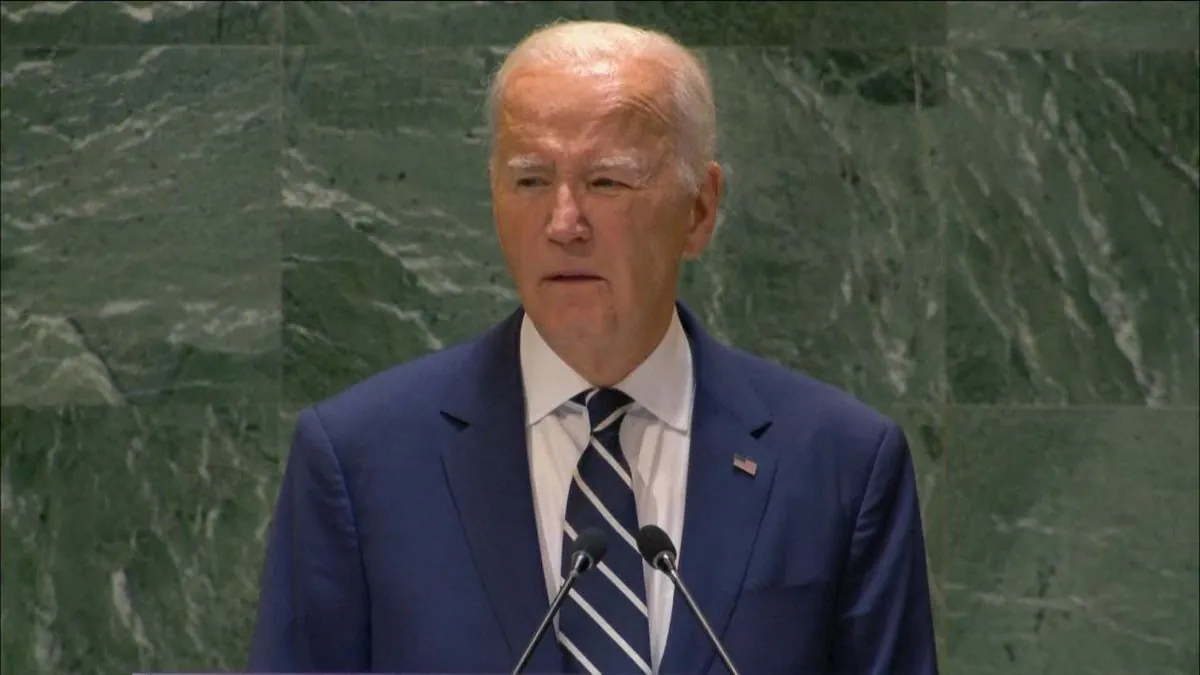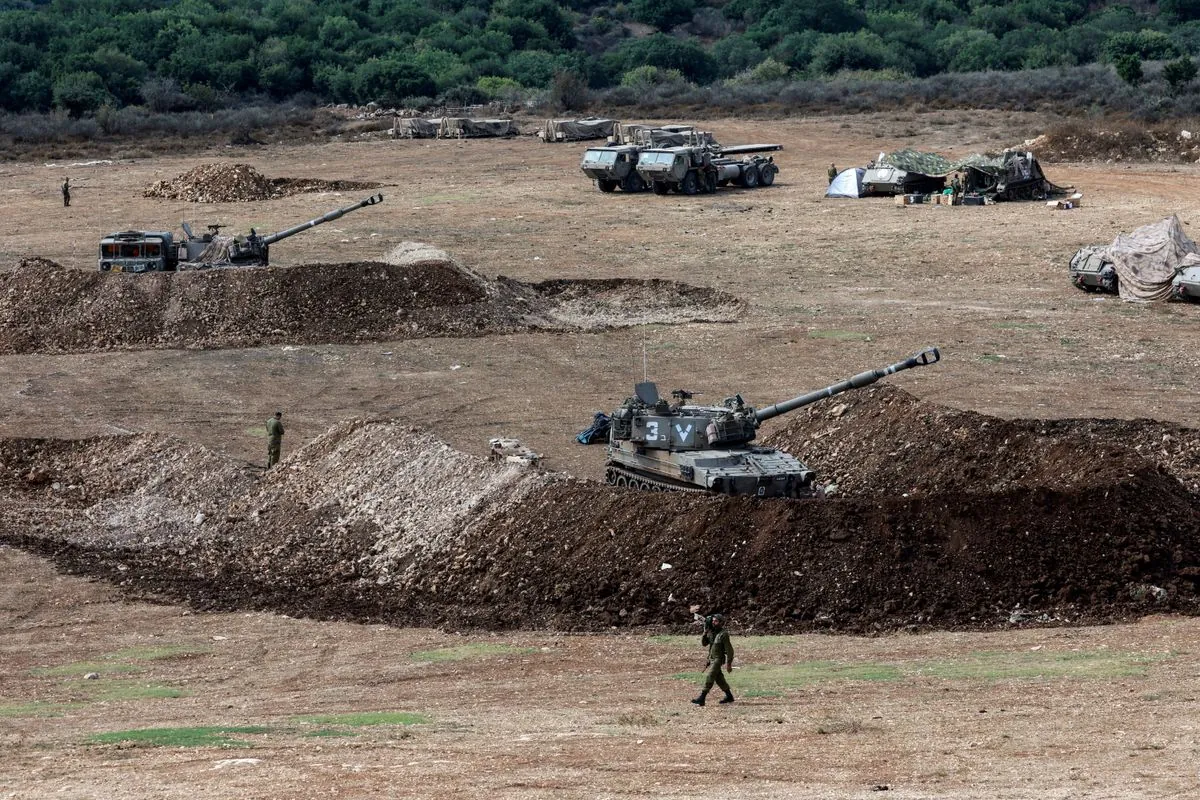Biden Warns of Potential "All-Out War" Amid Israel-Hezbollah Tensions
President Biden addresses escalating Israel-Hezbollah conflict, expressing hope for diplomatic resolution. U.S. officials work to de-escalate tensions as fears of broader Middle East war grow.

President Joe Biden has addressed the escalating tensions between Israel and Hezbollah, acknowledging the possibility of an "all-out war" while emphasizing efforts to find a diplomatic solution. The president's remarks came during an interview on ABC's "The View" on September 20, 2023, amidst growing concerns over the potential for a wider conflict in the Middle East.
The recent escalation between Israel and Hezbollah, a Lebanese Shiite Islamist political party and militant group founded in 1982, has resulted in hundreds of casualties. This conflict has reignited fears of a broader regional war, particularly given the complex geopolitical landscape of the area.
Biden expressed hope for a settlement that could "fundamentally change the whole region." He suggested that achieving a cease-fire between Israel and Hezbollah could potentially lead to a cessation of hostilities between Israel and Hamas militants in Gaza. As of September 25, 2024, it has been approximately 11 months and 18 days since the Hamas invasion of southern Israel on October 7, 2023, which marked the beginning of the ongoing conflict in Gaza.

The president emphasized his administration's commitment to finding a peaceful resolution, stating, "It's possible and I'm using every bit of energy I have with my team ... to get this done." This approach aligns with the United States' long-standing role in Middle Eastern diplomacy, having provided billions in military aid to Israel over the years.
Meanwhile, Israel's military leadership has announced preparations for a potential ground operation in Lebanon. This development comes as Hezbollah, whose military wing is estimated to have 20,000-30,000 fighters, has launched numerous projectiles into Israel, including a missile targeting Tel Aviv, which marks their deepest strike yet.
Secretary of State Antony Blinken has been actively working to de-escalate the situation, advocating for both Israel and Hezbollah to step back from the brink of war. Speaking at the annual U.N. General Assembly in New York, Blinken outlined the U.S. strategy:
"What we're focused on now, including with many partners here in New York at the U.N. General Assembly, the Arab world, Europeans and others, is a plan to de-escalate."
The Secretary of State emphasized that a full-scale war would not resolve the underlying issues and stressed the importance of diplomatic solutions. The U.S. is exploring various scenarios to calm the situation, though specific details have not been disclosed.
It's worth noting that the Israel-Lebanon border, approximately 120 kilometers long, has been a flashpoint for decades. The Blue Line, established in 2000 following Israel's withdrawal from southern Lebanon after an 18-year occupation, serves as the border demarcation between the two countries. However, areas like the Shebaa Farms remain disputed territories.
The international community is closely monitoring the situation, with France calling for a special U.N. Security Council meeting on Lebanon. This diplomatic initiative comes in the context of Lebanon's complex political landscape, as the country has been without a president since October 2022 and hosts over 1 million Syrian refugees, straining its resources.
As tensions continue to simmer, the specter of past conflicts looms large. The 2006 Lebanon War, which lasted 34 days between Israel and Hezbollah, resulted in over 1,000 Lebanese and 165 Israeli deaths. Both sides have since bolstered their military capabilities, with Israel developing advanced defense systems like Iron Dome.
The current situation underscores the fragile nature of peace in the region and the critical need for diplomatic engagement to prevent further escalation. As world leaders gather at the U.N. General Assembly, the international community remains hopeful that a path to de-escalation and lasting stability can be found.


































